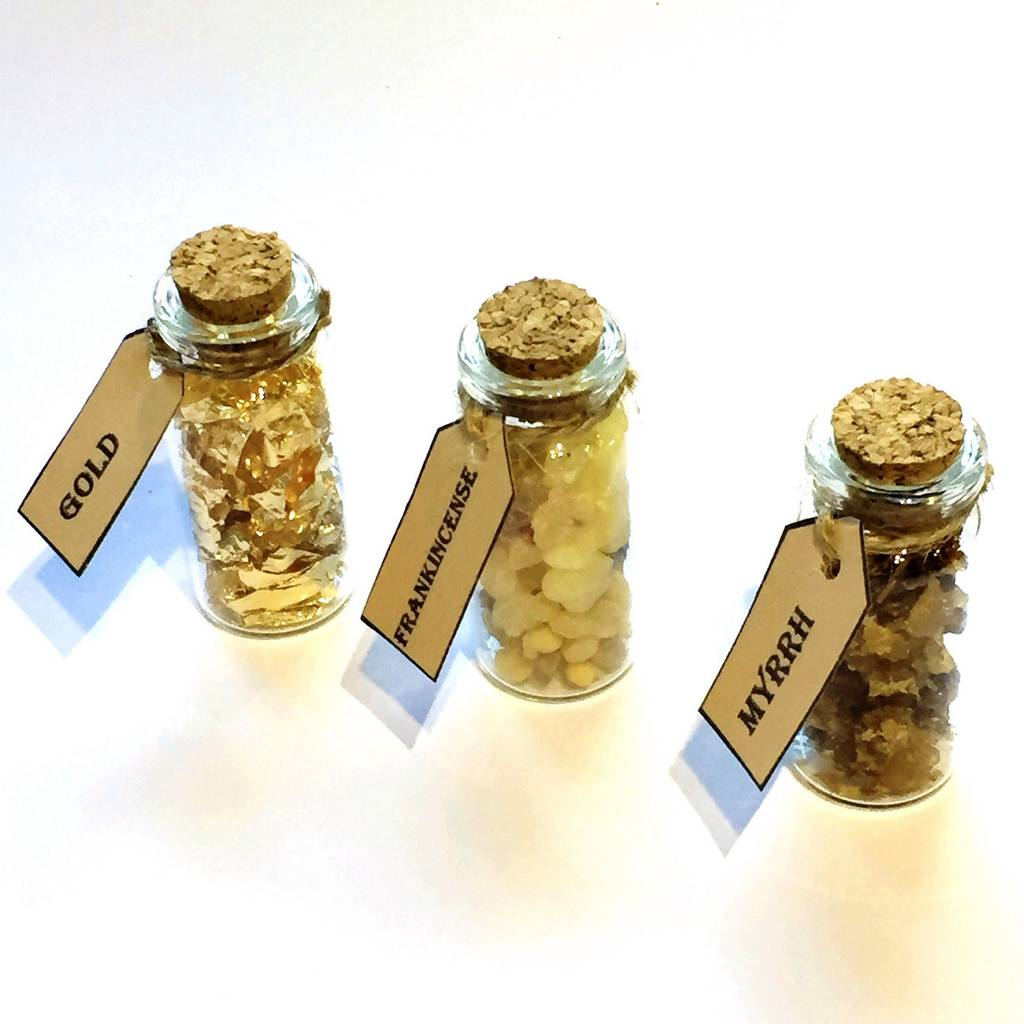What a very odd story this is, about the wise men coming to
Jesus.
For a start, you only find it in Matthew's gospel, and
not in Luke's.
To carry on with, it's quite difficult to
reconcile the course of events in Matthew with those in Luke –
for
instance, Luke seems to think that the family go straight back to
Nazareth, stopping off at Jerusalem on the way to present Jesus in
the temple,
whereas Matthew seems to think they lived in
Bethlehem all the time,
fled to Egypt to escape Herod's
vengeance after the wise men's visit,
and only then settled in
Nazareth.
I don't suppose it matters much, really, though,
because we have also got an incredible amount of tradition mixed up
with the stories –
the ox and the ass in the stable, for
instance;
you don't find those in either gospel account.
Nor,
in the one we have just heard read, were there three wise men!
It
doesn't say how many there were.
Tradition, of course, has made
of them kings;
Caspar, Melchior and Balthazar.
But that's
not what the Bible says.
And it is only tradition that
identifies gold with kingship,
frankincense with divinity, or
godhead,
and myrrh with death.
But seeing as we all have
our own mental image of the Nativity stories,
it doesn't matter
very much.
It wouldn't really be a Christmas crib without
donkeys and oxen, would it?
And it's a lot easier to depict
Eastern potentates than Zoroastrian astrologers, or whatever they
really were.
And if we see gold, frankincense and myrrh as
equivalent to kingship, godhead and death –
well, why not?
It
helps us remember a bit Who Jesus is,
and anything that does
that is always helpful.
I have heard people comment that
the wise men might have given more useful gifts, but, in fact, back
in the day what they gave would have been very useful.
After
all, gold is always useful, and when the Holy Family had to flee into
Egypt, as Matthew tells us they did,
they would have needed
gold to help cover their expenses.
And although you can get both
frankincense and myrrh very cheaply in Brixton these days –
Brixton
Wholefoods usually has them in their spice jars –
back in the
day they were very rich and rare.
And useful.
Frankincense
isn't just about saying that Jesus is divine,
it's also very
calming and soothing,
and it helps to heal chest infections and
coughs.
You can either burn it as incense –
and it is an
essential component of the incense that some Christians like to burn
in worship –
or you can buy the essential oil and dilute it to
massage yourself with.
It's also used in face creams for its
anti-ageing properties.
Myrrh, too –
rarer than
rare, back then –
is very healing.
When I was growing up,
there was always a little bottle of tincture of myrrh in the medicine
cabinet in case anybody had toothache –
tasted vile, but did
the trick.
It's still a component part of some toothpastes, even
today.
And I believe it can be used to heal skin irritations,
things like that –
not the toothpaste, of course, but the
essential oil, or a cream containing it!
And, as we know, it was
used in embalming the dead, and it's seen as symbolic of death.
So
you see they would have been useful gifts, as well as symbolic.
But
why does it matter?
What is it all about?
Partly, of
course, it is about giving to Jesus.
The kings, or wise men, or
whatever they were, brought gold, frankincense and myrrh to the one
"Born to be King of the Jews",
even though they were
not themselves Jewish.
Three of the most valuable commodities in
the ancient world,
and not only valuable, but very useful,
too.
I don't know what we would think of as the three most
valuable commodities of today - probably something like platinum and
uranium and petrol, which, except for the last, wouldn't be quite so
useful!
Nor quite so symbolic, either –
the tradition of
kingship, divinity and death may be only a tradition, not biblical,
but it is very powerful.
But then, that's not really
what's wanted today, is it?
What God wants of us today is
–
well, basically, nothing less than all of us.
Not just
our money, not just our time, but our whole selves.
And that's
scary!
Next week, Rev’d Rita will be leading you in the
Covenant service, when we recommit ourselves to being God's person in
the year to come.
Again, scary!
Very scary.
But
the thing is, that's actually only part of the Epiphany.
The
posh name for it is “The manifestation of Christ to the
Gentiles”.
The Gentiles.
And, when you come to think
about it, the Magi couldn't really have been more outsiders if they'd
tried with both hands!
They were, it is thought, some kind of
astrologers, diviners,
just exactly the sort of person Jews
were forbidden to be.
They came from the East, probably from
present-day Iraq or Iran,
not countries with whom Israel has
ever had a peaceful and friendly relationship!
The people
to whom God chose to make himself known in the person of the infant
Jesus were outsiders.
Rank outsiders.
Apparently not just
the Magi,
but also the shepherds whom Luke tells us about were
total outsiders,
far from the comfortable religious
establishment of the day.
And again and again we see this
in the New Testament, don't we?
It's the outsiders who get
special mention,
the tax-gatherers,
the prostitutes,
the quislings,
the terrorists,
the
members of the occupying power.
Even after the Ascension,
it is still the outsiders who get special mention –
Cornelius,
for instance, or the Ethiopian treasury official.
And
us.
What the story of the Epiphany tells us is that we are
loved.
Loved to the uttermost.
No matter who we are, what
background we come from,
and whether we love God or whether we
don't.
We are still loved.
Don't ever believe the
fundamentalist groups who want to tell you that God hates Muslims, or
gay people, or whoever –
it's simply not true.
Even if
you were to say “Oh, bother this for a game of soldiers,
I'm
never going near a church again!”
God would still love
you.
Even if you were to go out and murder someone in cold
blood,
or order your army to attack innocent people.
God
might hate it that you did that, but God would still love you.
God
might, or might not, have approved of the way the Magi worshipped
him, but
he still loved them, and caused their journey and their
gifts to be recorded in history.
I don't know if that
makes it any easier to give ourselves to God or not.
It's
difficult, isn't it?
And I think sometimes we stress about it
unnecessarily.
We are always going to get it wrong.
That
stands to reason.
We are, after all, only human, and the whole
point of the Incarnation, of Jesus becoming a human being, was so
that we could make mistakes and get it wrong and it wouldn't matter
too much.
After all, salvation was God's idea, not ours.
We
sometimes forget that, don't we?
We tend to live as though we
have to get it right, or we won't be Jesus' people any longer.
But
that's not so.
After all, what are we saved by?
What Jesus
did for us on the Cross, or by our own faith?
I rather think it
is what Jesus did for us that saves us!
But then, if we
are saved by what Jesus did for us, why bother?
Why give
expensive and valuable gifts,
like gold, and frankincense and
myrrh,
or even our own selves?
Isn't the answer because
Jesus is worth it?
Those of us who are parents know something of
what it must have cost God to send his only son to earth as a
helpless human baby.
We may even glimpse, sometimes, something
of what Jesus must have lost, limiting himself to a human body.
Jesus
is definitely worth all we can give to him, and then some!
And,
more than that, Jesus makes it worth our while giving to him!
Because
we are loved, because Jesus loved us enough to give up his whole life
for us, then anything we can give is accepted with love, with joy,
and is transformed into something greater.
Amen.

.jpg)






